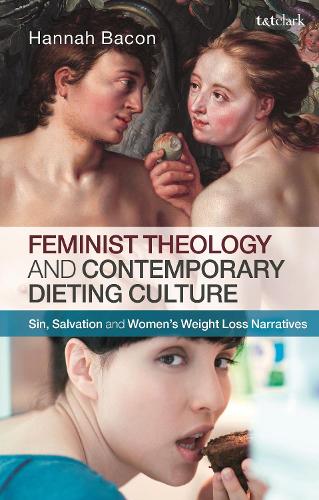
Feminist Theology and Contemporary Dieting Culture: Sin, Salvation and Womens Weight Loss Narratives
(Hardback)
Publishing Details
Feminist Theology and Contemporary Dieting Culture: Sin, Salvation and Womens Weight Loss Narratives
By (Author) Hannah Bacon
Bloomsbury Publishing PLC
T.& T.Clark Ltd
8th August 2019
United Kingdom
Classifications
Professional and Scholarly
Non Fiction
Theology
Feminism and feminist theory
Gender studies: women and girls
248.843
Physical Properties
Hardback
360
Width 138mm, Height 216mm
562g
Description
Hannah Bacon draws on qualitative research conducted inside one UK secular commercial weight loss group to show how Christian religious forms and theological discourses inform contemporary weight-loss narratives. Bacon argues that notions of sin and salvation resurface in secular guise in ways that repeat well-established theological meanings. The slimming organization recycles the Christian terminology of sin spelt Syn and encourages members to frame weight loss in salvific terms. These theological tropes lurk in the background helping to align food once more with guilt and moral weakness, but they also mirror to an extent the way body policing techniques in Christianity have historically helped to cultivate self-care. The self-breaking and self-making aspects of womens Syn-watching practices in the group continue certain features of historical Christianity, serving in similar ways to conform women's bodies to patriarchal norms while providing opportunities for women's self-development. Taking into account these tensions, Bacon asks what a specifically feminist theological response to weight loss might look like. If ideas about sin and salvation service hegemonic discourses about fat while also empowering women to shape their own lives, how might they be rethought to challenge fat phobia and the frenetic pursuit of thinness As well as naming as 'sin' principles and practices which diminish women's appetites and bodies, this book forwards a number of proposals about how salvation might be performed in our everyday eating habits and through the cultivation of fat pride. It takes seriously the conviction of many women in the group that food and the body can be important sites of power, wisdom and transformation, but channels this insight into the construction of theologies that resist rather than reproduce thin privilege and size-ist norms.
Reviews
I commend this emancipatory, countercultural Christian anthropology that celebrates human bodies, especially womens bodies, as imago Dei without perfecting efforts. * Theology *
By working within a feminist paradigm, Feminist Theology and Contemporary Dieting Culture rightfully orients the reader toward the oppressive (often double) standards that are applied to women, standards that lead to a disproportionate number of women who feel shame about their body. * Reading Religion *
In this age of understanding the human body and health mostly through the lens of science, it is easy to forget the long history of religious faith and its influence on contemporary western ideas and practices related to embodiment. In developing a feminist theological philosophy of weight loss, Hannah Bacon does a wonderful job of demonstrating the continuing importance of Christian beliefs in often surprising, but always thought-provoking ways. * Deborah Lupton, University of New South Wales, Australia *
Hannah Bacon offers a critical engagement with the pressing issue of women and dieting, which she rightly identifies as a political issue about the control and bounding of womens bodies. What emerges is an incarnational theology that claims womens bodies as bearers of the divine, as sacred. She encourages women to enjoy their flesh, offering the Sabbath as a symbol of how women may rest from a battle with their size and the Eucharist as a foody celebration that encourages sensible eating, that is sensuous, communal eating that builds community. This book contributes new insights to the already scarce existing work on the subject it offers a broader understanding of how slimming groups work and from this a sharp theological analysis which in turn brings to light new ways to understand theology. * Lisa Isherwood, University of Winchester, UK *
Author Bio
Hannah Bacon is Acting Head of Theology and Religious Studies and Associate Professor in Feminist and Contextual Theology at the University of Chester, UK.
